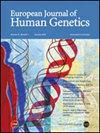Incorporating biobanking into the future of healthcare: exploring patient and healthcare worker perspectives at a Canadian tertiary academic hospital
IF 4.6
2区 生物学
Q2 BIOCHEMISTRY & MOLECULAR BIOLOGY
引用次数: 0
Abstract
Biobanks are an essential resource for researchers conducting scientific and translational research but require significant support from institutions and healthcare workers (HW) to operate and are reliant on patient consent and participation. In order to better understand the barriers to institution-wide biobanking, we conducted a survey to examine the knowledge, attitudes and concerns of patients and HW on a range of biobanking-related topics, including consenting practices, privacy and trust in the healthcare team and researchers, and current practices at Sunnybrook Health Sciences Centre. Overall, we found that there is strong patient and HW support for biobanking as a resource for research (89–96%). Furthermore, the majority 53% of HW are willing to incorporate biobanking into their clinical workflow and 39% had a neutral response. Encouragingly, patients possess a high level of trust in their healthcare team (80-99%). The main concerns regarding sample donation were ‘breaches of privacy’ and ‘genetic information being used in an exclusionary (discriminatory) fashion.’ Concerns around specimen utilization emerged as a major theme from HW. These results will inform and enhance future biobanking practices to improve the patient experience and increase patient engagement while streamlining specimen collection and utilization for scientific research.

将生物银行纳入医疗保健的未来:探索加拿大三级学术医院的患者和医疗保健工作者的观点。
生物库是研究人员进行科学和转化研究的重要资源,但需要机构和卫生保健工作者(HW)的大力支持才能运作,并依赖于患者的同意和参与。为了更好地了解机构范围内生物银行的障碍,我们进行了一项调查,以检查患者和卫生工作者对一系列生物银行相关主题的知识、态度和关注,包括同意实践、对医疗团队和研究人员的隐私和信任,以及Sunnybrook健康科学中心的当前实践。总的来说,我们发现患者和卫生工作者对生物银行作为研究资源有很强的支持(89-96%)。此外,53%的医疗工作者愿意将生物银行纳入他们的临床工作流程,39%的人反应中性。令人鼓舞的是,患者对医疗团队的信任度很高(80-99%)。对样本捐赠的主要担忧是“侵犯隐私”和“以排他性(歧视性)方式使用遗传信息”。对标本利用的关注成为HW的主要主题。这些结果将为未来的生物银行实践提供信息和加强,以改善患者体验,提高患者参与度,同时简化标本采集和科学研究的利用。
本文章由计算机程序翻译,如有差异,请以英文原文为准。
求助全文
约1分钟内获得全文
求助全文
来源期刊

European Journal of Human Genetics
生物-生化与分子生物学
CiteScore
9.90
自引率
5.80%
发文量
216
审稿时长
2 months
期刊介绍:
The European Journal of Human Genetics is the official journal of the European Society of Human Genetics, publishing high-quality, original research papers, short reports and reviews in the rapidly expanding field of human genetics and genomics. It covers molecular, clinical and cytogenetics, interfacing between advanced biomedical research and the clinician, and bridging the great diversity of facilities, resources and viewpoints in the genetics community.
Key areas include:
-Monogenic and multifactorial disorders
-Development and malformation
-Hereditary cancer
-Medical Genomics
-Gene mapping and functional studies
-Genotype-phenotype correlations
-Genetic variation and genome diversity
-Statistical and computational genetics
-Bioinformatics
-Advances in diagnostics
-Therapy and prevention
-Animal models
-Genetic services
-Community genetics
 求助内容:
求助内容: 应助结果提醒方式:
应助结果提醒方式:


